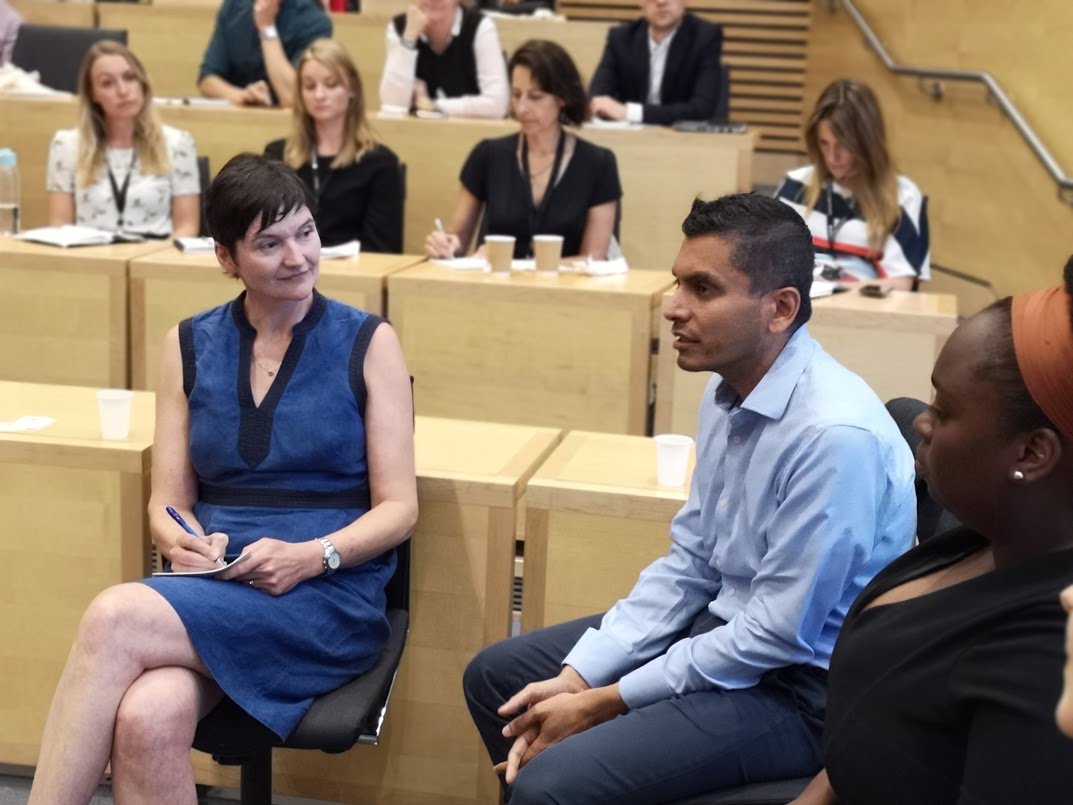By Jo Zaremba
A stimulating discussion was had at our curated Advocacy Partnerships session with The Partnering Initiative this morning at Business Fights Poverty’s flagship Oxford conference. Panellists and the audience shared case studies demonstrating how business can make a significant contribution to the SDGs, but also raising practical, ethical, intellectual and moral challenges.
The diversity of discussion points is indicative of the diversity of Advocacy Partnerships and contexts where they exist. From debating the roles of companies in policy and regulatory arenas to the nature and extent of reporting practices and impact, different lessons emerged which showed that collaborations provide both synergies and contradictions.
Interesting reflections in the room on how in contexts lacking the systems, structures, and commitments to basic rules of Human Rights, the role of business is to go beyond compliance to improve the social or environmental ecosystem. Meanwhile, companies need to align policy, practice and advocacy with sustainability. Insightful thoughts on how NGOs can bring in external voices to encourage better business but need to balance challenges with solutions.
Panellists discussed how scale and impact can only be achieved through tackling root causes of social issues. Resolving complex problems require the types of dialogue and collaboration that partnerships offer to bring different minds, experiences, and approaches together to deliver systemic change.
The challenges of forming, managing, maintaining, and measuring the impact of Advocacy Partnerships echo other types of partnerships. Given the scale of the challenge posed by delivering the SDG’s, the conclusion from the lively discussion was that investing to address these challenges are worth the effort – for companies, civil society and governments alike.
Look out for more from our Partnership Zone Innovation session with TPI later today.

